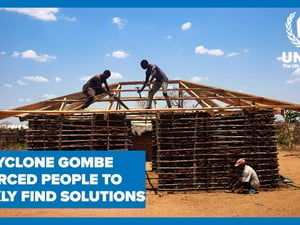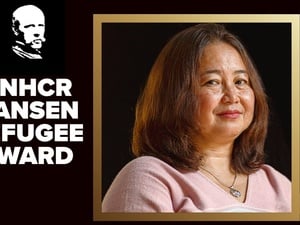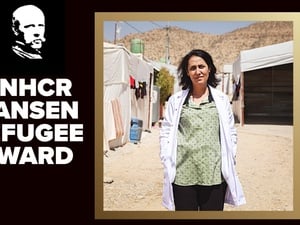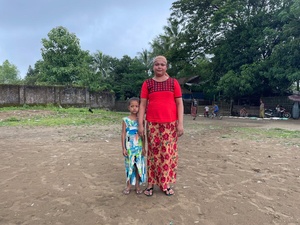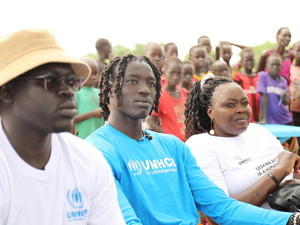More than 1.4 million internally displaced Ugandans head home since 2006
More than 1.4 million internally displaced Ugandans head home since 2006
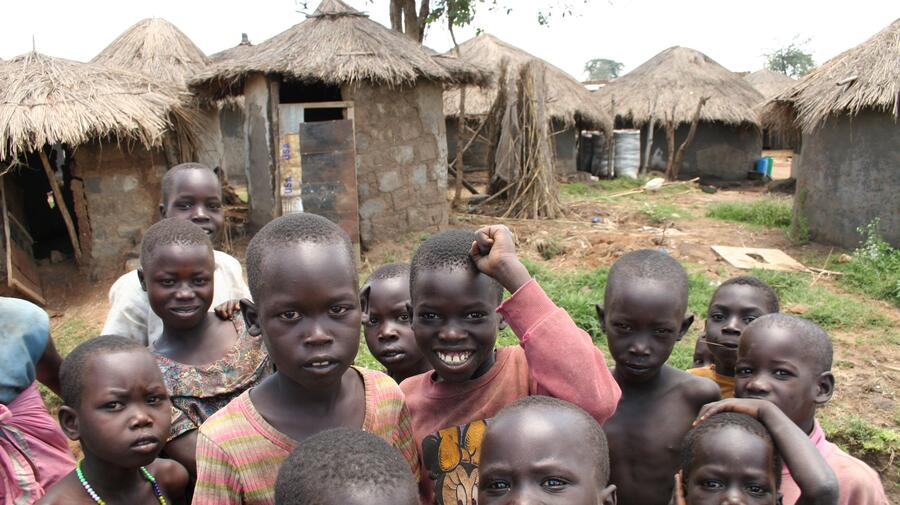
Children at a camp for displaced children in northern Uganda. More than three-quarters have gone home.
KAMPALA, Uganda, July 27 (UNHCR) - Since relative peace returned to northern Uganda in 2006 after more than two decades of conflict, some 80 percent of the more than 1.8 people in camps for the internally displaced have returned home.
Most of the 1.4 million people left the camps for internally displaced people (IDPs) on their own, but UNHCR and other organizations have helped create conditions to ease their reintegration in areas of return.
UNHCR had also successfully lobbied the government to allow the IDPs freedom of movement rather than confinement in camps, and for camp management to be transferred to civilians from military control. These developments have made it easier for people to return home and led to an increase in the pace of return last year.
When the stuttering peace talks between the Ugandan government and the rebel Lord's Resistance Army began in 2006, there were 1.84 million civilians living in the IDP camps. The current camp population is 388,000.
"I am impressed by the progress made in addressing the displacement situation in northern Uganda, where almost 80 percent of the formerly displaced have returned to their villages," Walter Kalin, the UN's special representative on the rights of internally displaced people, said after a visit earlier this month to Uganda.
UNHCR continues to help the returnees, especially the vulnerable and those with special needs. The refugee agency has funded the construction of 2,500 homes in northern Uganda and distributes non-food items to the neediest, as well as helping them with income-generation projects.
Faustino Nyeko, a father of six, is among those with special needs who have returned home. He only has the use of one leg after contracting polio as a child. Today, he resides in a village in Pader district and makes a living from poultry farming and aquaculture. "I am now living a more productive life," he said, adding: "I was not able to provide for my family while in the camp, but now I can."
Unlike Nyeko, however, few of the most vulnerable and those with special needs have returned home from camps. There are about 8,300 in the camps and they include older people, single-headed households, those living with disabilities and unaccompanied children.
By Vanessa Akello in Kampala, Uganda


